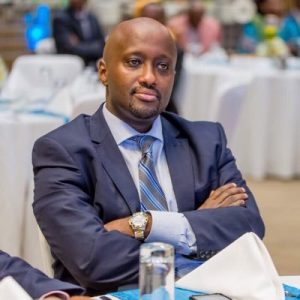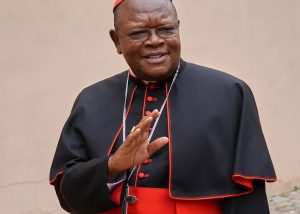Trump lays out sweeping early acts on deportation and January 6 pardons, says Cheney and others ‘should go to jail’
4 min readIn a recent television interview, President-elect Donald Trump outlined a sweeping set of priorities for his first days in office. During the “Meet the Press” interview on NBC, Trump previewed his administration’s stance on immigration, criminal justice, foreign policy, and other key issues, making it clear that his approach would diverge significantly from the current administration.
One of the central points Trump discussed was his plan to address immigration, particularly the fate of migrants brought to the United States as children, known as “Dreamers.” Trump emphasized that his administration would prioritize deporting individuals with criminal records, but he also expressed a willingness to work with Democrats on a solution for Dreamers. He acknowledged that many Dreamers are now adults who have lived in the U.S. for most of their lives, and said he would be open to discussions on providing them a path to legal status. “We’ll have to do something about the Dreamers,” Trump said, highlighting the difficulty of the issue. However, he stood by his previous campaign promises to implement mass deportations, particularly for those who entered the country illegally, and reaffirmed his commitment to ending birthright citizenship, which he claims is a practice unique to the U.S.
Trump also clarified that he would not seek retribution against President Joe Biden or his political adversaries. However, he indicated that members of Congress involved in investigating the January 6th Capitol riot should face jail time. Trump specifically targeted former Rep. Liz Cheney, who served as co-chair of the January 6th committee, along with Democratic Rep. Bennie Thompson, suggesting that they should be incarcerated for their roles in the investigation. His rhetoric raised concerns about the future of the Justice Department under his administration, with Trump hinting at the possibility of pardons for those involved in the January 6th attack. He claimed that many of the defendants involved in the riot have been held in “filthy” conditions for years, and he would look into issuing pardons for them on his first day in office.
The prospect of investigating those who led the inquiry into January 6th seemed to be a part of Trump’s broader push to reshape the Justice Department. He noted that he would allow his appointed officials, such as Pam Bondi, his pick for attorney general, to determine whether any investigations should proceed. He also said that he would not direct investigations into special counsel Jack Smith, who oversaw two federal cases against Trump that were later dropped, but added that Bondi and Kash Patel, his pick to lead the FBI, would have the autonomy to act as they see fit.
Despite his combative stance, Trump also expressed a desire to focus on unity and national success, stressing that he did not want to dwell on past conflicts. His aim, he claimed, was to make America successful, a message he intends to emphasize during his inauguration. However, he also repeated his baseless claims about the 2020 election, continuing to insist that the outcome was fraudulent.
In the realm of foreign policy, Trump indicated that his administration would prioritize an “America First” approach. He reiterated his campaign promise to impose tariffs on major trading partners like China, Mexico, and Canada, citing concerns that the U.S. had been “subsidizing” these countries. However, he admitted that he could not guarantee these tariffs would not lead to higher prices for American consumers. On NATO, Trump stated that he would consider withdrawing from the alliance if European countries did not increase their defense spending, further signaling a shift away from traditional U.S. foreign policy.
Trump’s stance on Social Security and entitlement programs was also a focal point. He committed to not cutting Social Security or raising the retirement age but expressed interest in making the system more efficient by eliminating waste and fraud. He also mentioned his controversial pick of Robert F. Kennedy Jr. to head the Department of Health and Human Services, signaling that he might push for a review of childhood vaccinations, despite the overwhelming scientific consensus about their safety.
In the context of Ukraine, Trump suggested that U.S. aid might be reduced under his presidency, raising concerns about the future of American support for Ukraine as it continues to fight Russian aggression. He said it was “possible” or even “probable” that U.S. aid to Ukraine would diminish once he takes office, reflecting his isolationist foreign policy stance.
Trump also reiterated his commitment to transparency regarding his health, promising to release his medical records. While he had previously released letters from his doctors, detailed accounts of his medical history have not been made public.
While Trump’s comments made clear his intention to implement his campaign promises, they also highlighted the significant controversies and challenges he would face upon taking office. His approach to immigration, criminal justice, and foreign policy is set to provoke intense debate, while his focus on retribution against his political opponents adds another layer of unpredictability to his administration. As he prepares to assume office, Trump’s bold claims about mass deportations, pardons, and foreign policy shifts suggest that his presidency will be marked by a return to his populist, confrontational style.








